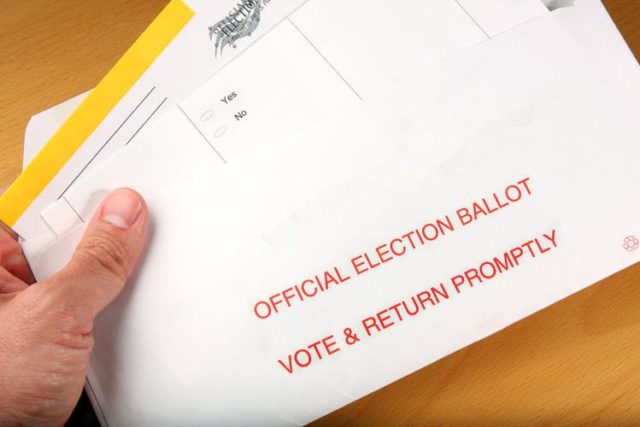
(The Center Square) – The House Committee on State Government and Tribal Relations on Wednesday morning approved Substitute House Bill 1727 to ban ballot measures in odd years, but still allow local governments to call special elections to increase taxes.
The bill moved forward at the committee’s virtual executive session with a do-pass recommendation on a narrow 4-3 party line vote. Democratic Reps. Mia Gregerson, the bill’s prime sponsor, Debra Lekanoff, Javier Valdez, and Laurie Dolan voted “yes.” Republican Reps. Mike Volz, Jenny Graham, and Jim Walsh voted “no.”
Also passed on a party line vote was an amendment to the bill proposed by Gregerson that reinserted the word “general” into the text of the bill as a cost-saving measure.
“Again, just to clarify that the word ‘general’ is so that there is a sharing of cost on the ballot during the general election, I believe,” Gregerson said. “So, we want to ensure that there is a sharing of the cost.”
She defended the bill before the vote on passing it out of committee.
“It’s one of the most important, I think, pieces of policy that we can be considering this year,” Gregerson said. “We know over and over every year during the odd year that we have half the number of people turning out to vote. These are extremely important elections. They’re making decisions for everyday people.”
She went on to say she hopes to see the state “move into a more modern way of doing things, having a shared ballot.”
Gregerson reiterated the lower turnout and lower cost justifications for SHB 1727.
“As we talked about earlier, it is more cost-efficient, it’s better government,” she said. “When more people vote, we have a better democracy, more transparency, and better decisions.”
Republicans on the committee disagreed.
Noting that fewer elections could translate into single-page ballots expanding into multi-page ballots in certain jurisdictions, Volz questioned the premise the bill would cut costs.
“The cost savings do not exist,” he said. “They may expand costs.”
Volz was firm in his opposition.
“So, there’s a lot of struggles for us to vote ‘yes’ on this bill,” he said. “I think paramount in that is eroding the right of the citizens of the state of Washington to address their government fully during either year.”
Graham questioned the lower voter turnout justification for the bill.
“It’s not proven that people will vote more if we just have one election, and I think if you look at the election process they do vote more in the even year,” she said. “That shows very clearly that they vote when they want to vote.”
It’s not as if casting a ballot in Washington state is especially difficult given mail-in voting, Graham pointed out, noting it’s never been easier to vote.
Walsh savaged the bill.
“In our state, the referendum process is the people’s veto and anything that delays minimizes the power of that veto,” he said. “This bill would delay the ability of the people to exercise their right through referendum to veto bad policy.”
Walsh also pointed out what he called a “logical conundrum” inherent in the legislation.
“I don’t see how offering fewer opportunities to participate in a democracy somehow increases access to democracy,” he said.
SHB 1727 now goes to the full House for consideration.




